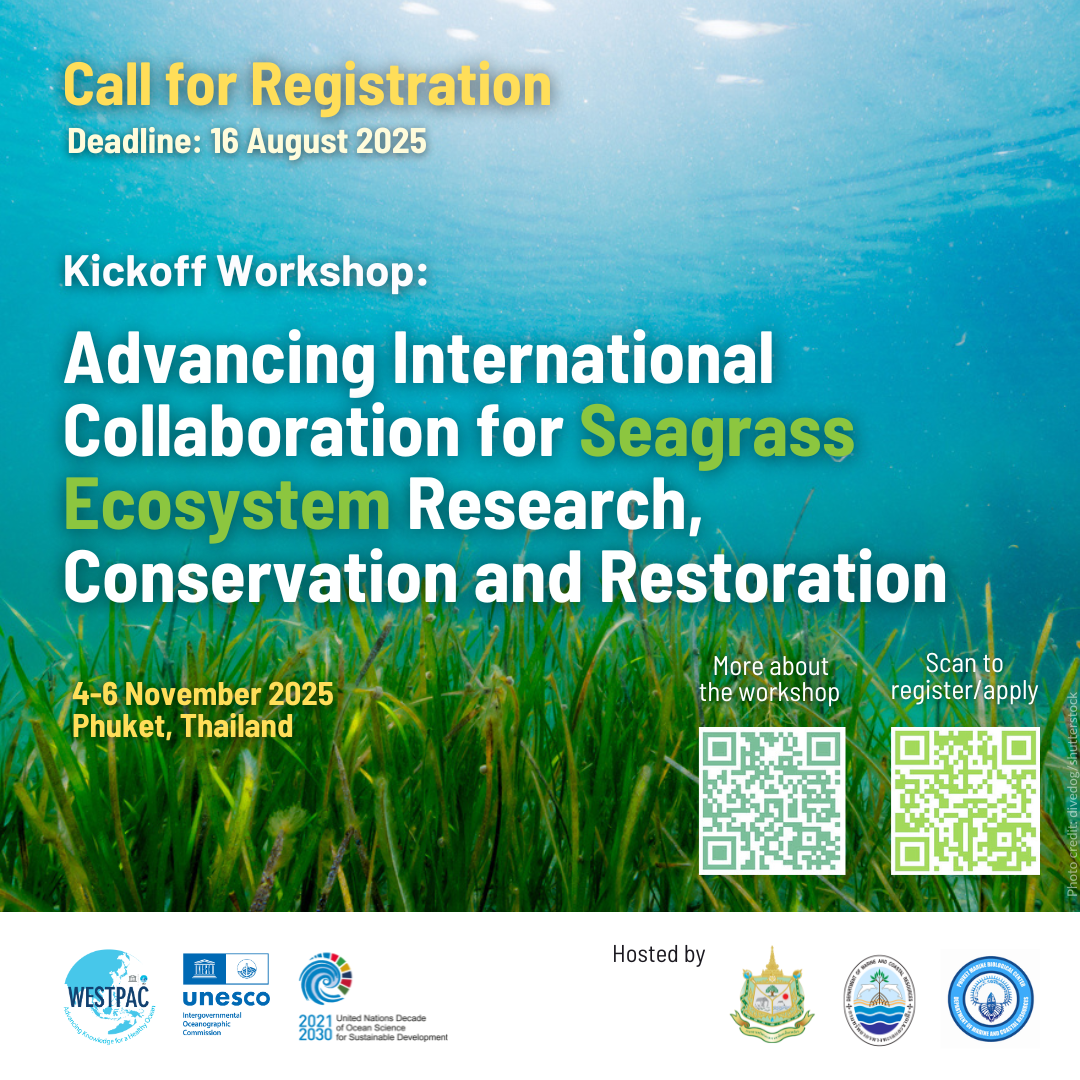
Phuket, Thailand, 4-6 November 2025

Seagrass ecosystems are of vital ecological, social and economic significance in the Western Pacific. Seagrass ecosystems in Southeast Asia are experiencing rapid degradation due to increasing anthropogenic pressures, including overfishing, pollution, coastal development, and the impacts of climate change. In recent years, several documented or suspected large-scale seagrass die-offs in the region have underscored a critical challenge: the lack of comprehensive knowledge and data on seagrass continues to hinder the ability of scientists and policymakers to formulate and implement effective conservation and management strategies.
A one-day field visit to a seagrass restoration site will be organized to provide practical insights that complement the workshop discussions.
Workshop Objectives
The workshop aims to:
- Share knowledge about the current status of seagrass ecosystem and related research including relevant policies, management practices, research approaches, methods, and techniques;
- Identify key challenges and knowledge gaps, and explore opportunities of joint initiatives and collaborative activities in the Western Pacific.
- Launch the Seagrass Working Group and initiate its major activities;
- Conduct a field visit to observe degradation status and examine local restoration efforts.
Qualified Participants
The kickoff workshop will convoke seagrass experts, researchers, and managers from Member States in the Western Pacific. Ideally, they should have rich experience in seagrass research and conservation, and the capacity to lead and carry out seagrass research and conservation in their respective countries. Community organizations and NGOs in Thailand will also be invited to join the field trip to share their perspectives and contributions to local restoration efforts.
Registration
Individuals who are nominated or self-nominated and are committed to contributing to the collective effort and shared goals are encouraged to complete the Online Registration Form (no more available) as early as possible, preferably before 16 August 2025.
If you are unable to access the online form, please complete the Offline Registration Form (no more available) and email it to iocwestpac@unesco.org with the subject line: “Registration Form – Seagrass Collaboration Kickoff Workshop.”
Please note that funding for international travel is limited and will be prioritized for participants from developing countries. Selection will be based primarily on the applicant’s CV, his/her work experience, and previous engagement with WESTPAC or other related international programmes.
Updated information about the workshop will be made available in due course at this event page.
Important Links
- Concept note (pdf)
- Executive Summary (updated on Dec 15)


